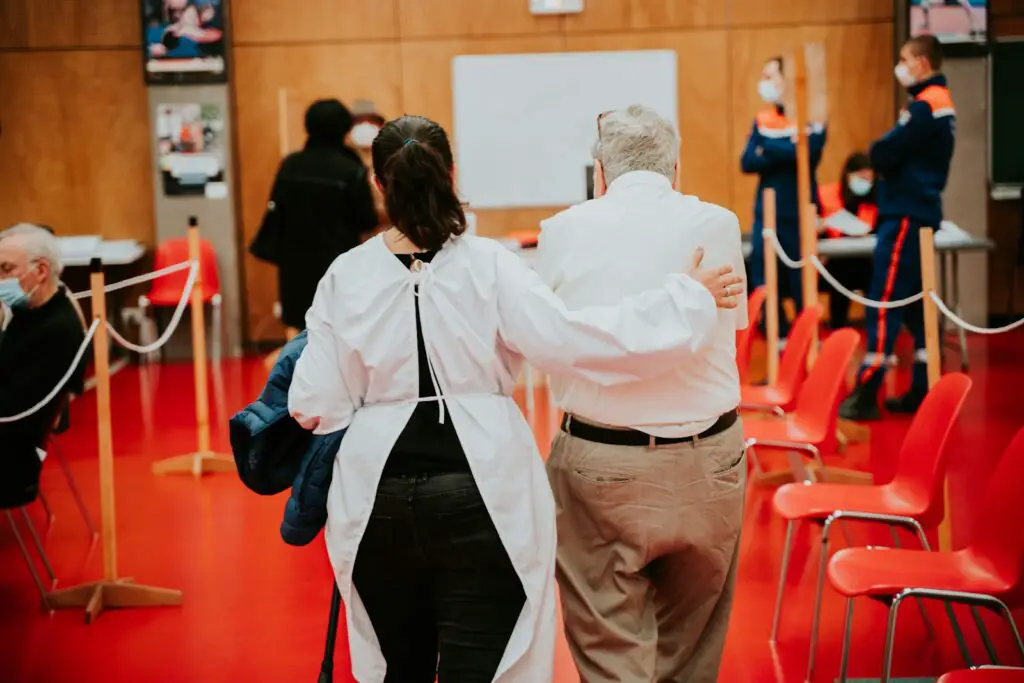Are you passionate about making a positive impact in the world and giving back to those in need? If so, you may be interested in learning how to become a philanthropist. Becoming a philanthropist allows you to use your resources and influence to support charitable causes and make a difference in the lives of others.
In this article, we will guide you through the steps to becoming a philanthropist, from defining your philanthropic goals to implementing effective giving strategies. By the end, you will be well-equipped with the knowledge and inspiration to embark on your philanthropic journey and create lasting change for the betterment of society. So, let’s dive in and discover how you can make a difference as a philanthropist.

Understanding Philanthropy
Understanding philanthropy is essential for those interested in becoming a philanthropist. By learning about the principles and ways to make a positive impact, individuals can effectively contribute to charitable causes and create meaningful change in their communities.
What is Philanthropy?
Before we delve into the realm of philanthropy, let’s understand what it truly means. Philanthropy is the act of giving, whether it be donating money, time, or resources, to help make a positive impact on the lives of others. It goes beyond just providing financial assistance; it involves actively engaging in charitable acts and initiatives to uplift communities, support meaningful causes, and address social issues. Philanthropists aim to create lasting change and improve the well-being of society as a whole.
The Importance of Philanthropy
Philanthropy plays a significant role in shaping our world for the better. Its importance cannot be emphasized enough, as it has the power to transform lives and communities. Here are some reasons why philanthropy is crucial:
- Addressing Social Issues: Philanthropy enables us to tackle pressing social issues that may otherwise go unresolved. By supporting organizations and initiatives that focus on education, poverty alleviation, healthcare, environmental conservation, and more, philanthropists contribute to finding sustainable solutions and creating a more equitable society.
- Empowerment and Generosity: Engaging in philanthropy allows individuals to directly impact the lives of those in need. It empowers us to exercise compassion, foster kindness, and promote a culture of giving. Through philanthropy, we can inspire others to join in the efforts and create a ripple effect of positive change.
- Building Stronger Communities: Philanthropic contributions strengthen the fabric of communities. By supporting local initiatives, nonprofits, and grassroots organizations, philanthropists invest in the well-being and growth of the communities they serve. This, in turn, helps create a sense of solidarity, connectedness, and resilience.
- Leveraging Influence and Resources: Philanthropy allows individuals with influence and resources to use them in a responsible and impactful manner. By leveraging their social, financial, and intellectual capital, philanthropists can amplify the reach and effectiveness of their efforts, ultimately driving positive change at a larger scale.
- Legacy and Personal Fulfillment: By engaging in philanthropy, individuals have the opportunity to leave a lasting legacy. Philanthropists can shape the world in a way that aligns with their values, beliefs, and passions. Moreover, the act of giving itself brings immense personal fulfillment and a sense of purpose.
Understanding philanthropy helps us recognize its deep significance and the positive influence it can have on society. It encourages us to embrace our inherent capacity for empathy, generosity, and social responsibility.
Throughout this series, we will explore various aspects of becoming a philanthropist, including how to identify causes that resonate with us, strategies for effective giving, and ways to maximize our impact.
Together, let’s embark on this journey of making a difference and leaving a positive mark on the world.
Personal Development for Philanthropy
Philanthropy is not just about giving money; it is a way of making a positive impact on society while aligning with your values and passions. In order to become a successful philanthropist, personal development plays a crucial role.
By focusing on personal growth, you can enhance your understanding of social issues, pinpoint your passions and values, and establish clear giving goals. Let’s dive into these essential steps to help you on your journey towards becoming a philanthropist.
Identify Your Passions and Values
Identifying your passions and values is the foundation of philanthropy. Take some time to reflect on what truly matters to you and what causes ignite a fire within you.
Are you passionate about education, environmental conservation, or empowering disadvantaged communities? Once you have a clear understanding of your passions and values, you can focus your philanthropic efforts towards causes that are meaningful to you.
Educate Yourself on Social Issues
Educating yourself on social issues is vital to become an effective philanthropist. Knowledge empowers you to understand the root causes, challenges, and potential solutions related to the causes you care about.
Engage with reputable sources such as books, documentaries, and online resources to gain a comprehensive understanding of the issues at hand. This knowledge will not only help you make informed decisions but also allow you to communicate your mission effectively to others.
Establish Clear Giving Goals
Setting clear giving goals is essential for your philanthropic journey. Start by envisioning the impact you want to make and establishing measurable goals that align with your passions and values.
Determine the scope of your giving, whether you want to focus locally, nationally, or globally. Break down your goals into specific timeframes and milestones to track your progress. By setting clear goals, you can stay focused and make a meaningful difference in the areas you are passionate about.
Remember that personal development is an ongoing process. Continuously assess your passions, educate yourself, and adjust your giving goals as needed. By staying committed to personal growth, you can become a philanthropist who creates a lasting impact on society.
Taking Action as a Philanthropist
Once you have decided to become a philanthropist and make a positive impact in the world, it’s time to take action. This involves researching and identifying charitable organizations, determining the best mode of giving, and maximizing your impact. By following these steps, you can ensure that your philanthropic efforts are focused, effective, and achieve the greatest possible outcome.

Research and Identify Charitable Organizations
The first step in taking action as a philanthropist is to research and identify charitable organizations that align with your values and the causes you care about. Conducting thorough research will help you understand the impact these organizations are making and ensure your donations are being used responsibly. Start by:
- Defining your philanthropic interests and goals. What issues do you want to address? Which causes are close to your heart?
- Use reliable resources such as online platforms, government databases, or professional networks to find charitable organizations that focus on those causes.
- Reviewing the reputation, financial transparency, and track record of these organizations to ensure they operate ethically.
- Examining their mission, programs, and impact to understand how they are making a difference.
By doing this research, you can confidently select charitable organizations that resonate with your values, ensuring that your donations are making a meaningful impact.
Determine the Best Mode of Giving
After identifying the charitable organizations that align with your interests, it’s essential to determine the best mode of giving. There are various ways to contribute beyond monetary donations, such as:
- Direct Donations: Give a one-time or recurring financial contribution to the organization.
- Volunteer: Offer your skills, time, or expertise by volunteering with the organization.
- In-kind Donations: Donate goods or services that the organization needs.
- Partnerships: Collaborate with the organization to create a mutually beneficial project or initiative.
Consider your personal circumstances, resources, and expertise when deciding which mode of giving is the best fit for you. Remember that philanthropy is not limited to financial contributions and can involve various forms of support.
Maximizing Your Impact
As a philanthropist, you want to make the most significant impact possible with your contributions. To maximize your impact, consider the following strategies:
- Evaluate the Effectiveness: Continuously assess the impact of the charitable organization you are supporting. Monitor their progress, performance, and outcomes to ensure your contributions are making a difference.
- Leverage your Network: Use your connections and influence to expand the reach of the organization. Introduce them to potential partners, sponsors, or volunteers who can contribute to their cause.
- Encourage Transparency: Support organizations that prioritize transparency and share detailed reports on how they utilize their funding. This way, you can establish trust and encourage other donors to contribute as well.
- Collaborate with Others: Explore opportunities for collaborative philanthropy by joining forces with other donors or organizations. By pooling resources and expertise, you can tackle complex issues more effectively.
By following these strategies, you can ensure that your philanthropic efforts have a lasting and meaningful impact on the causes you care about most.
Final Words
Becoming a philanthropist is not an unreachable goal, but a journey that starts with personal values and a desire to create positive change. By educating oneself about various causes, establishing clear goals, and taking small steps towards giving back, anyone can become a philanthropist and make a difference in the world.
Remember, philanthropy is not limited to financial contributions; it is a mindset of compassion and empathy that can be practiced by anyone, regardless of their resources. So, start your journey today and embrace the power of giving!
